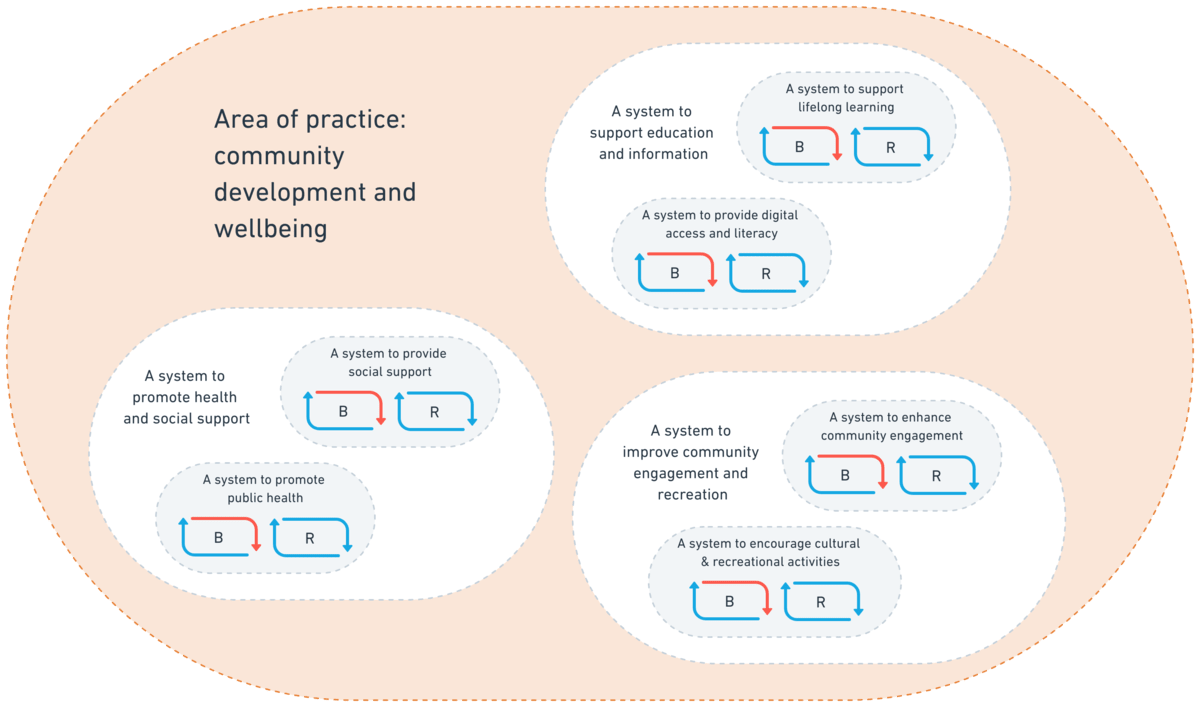TB871: Block 2 Tools stream references
Note: this is a post reflecting on one of the modules of my MSc in Systems Thinking in Practice. You can see all of the related posts in this category.
Just a quick post to share the books, articles, and other material referenced in the Block 2 Tools stream that I might want to come explore at some point in the future (Open University, 2020)
Carnohan, S.A., Clifford-Holmes, J.K., McKnight, U.S. and Pollard, S. (2020) ‘Climate change adaptation in rural South Africa: using stakeholder narratives to build system dynamics models in data-scarce environments’. To be published in Journal of Simulation [Preprint].
Forrester, J. (1975) ‘Counterintuitive nature of social systems’, in Ramage, M. and Shipp, K. (2020) Systems thinkers, 2nd edn. Milton Keynes: The Open University/London: Springer, p. 105.
Hardin, G. (1968) ‘Tragedy of the commons’, Science, 162(3859), pp. 1243–48.
Hughes, L. (2019) ‘MPs opt by majority of 1 to seek delay to Brexit’, Financial Times, 3 April. DOI https://www.ft.com/content/02492618-5630-11e9-91f9-b6515a54c5b1 (Accessed 20 February 2020).
Jagustović, R., Zougmoré, R.B., Kessler, A., Ritsema, C.J., Keesstra, S. and Reynolds, M. (2019) ‘Contribution of systems thinking and complex adaptive system attributes to sustainable food production: example from a climate-smart village’, Agricultural Systems, 171, pp. 65–75. Available at: http://oro.open.ac.uk/58925 (Accessed: 20 January 2020).
Lane, D (2019) ‘New truths begin as heresies: thoughts on system dynamics and global modelling’, Systems Research and Behavioural Science, 36, pp. 233–43.
Maani, K. and Cavana, R. (2007) Systems thinking, systems dynamics: managing change and complexity. 2nd edn. North Shore City: Pearson Education New Zealand.
Meadows, D.H., Meadows, D.L., Randers, J. and Behrens III, W. (1972) The limits to growth. New York: Potomac Associates – Universe Books.
Meadows, D.H. (2008) Thinking in systems: a primer. London: Earthscan.
Meadows, D.H., Randers, J. and Meadows, D. (2005) The limits to growth: the 30 year update. London: Earthscan.
Morecroft, J. (2020) ‘System dynamics’, in Reynolds, M. and Holwell, S. (eds.) Systems approaches to making change: a practical guide. 2nd edn. Milton Keynes: The Open University/London: Springer, pp. 25–88.
Morecroft (2015) The instructor companion site for strategic modelling and business dynamics: a feedback systems approach, + Website, 2nd edition. Available at: http://bcs.wiley.com/he-bcs/Books?action=index&bcsId=9580&itemId=1118844688 (Accessed 19 August 2019).
Morecroft, J. (2007) Strategic modelling and business dynamics: a feedback systems approach. Chichester: John Wiley.
Ramage, M. and Shipp, K. (2020) Systems thinkers. 2nd edn. Milton Keynes: The Open University/London: Springer.
Senge, P.M. (2006) The fifth discipline: the art and practice of the learning organization. 2nd edn. London: Random House Business.
Turner, G. and Alexander, C. (2014) ‘Limits to growth was right. New research shows we’re nearing collapse’, The Guardian: Opinion, 2 September. Available at: https://www.theguardian.com/commentisfree/2014/sep/02/limits-to-growth-was-right-new-research-shows-were-nearing-collapse (Accessed: 12 October 2019).
Wilson, D. (2016) ‘The tragedy of the commons: how Elinor Ostrom solved one of life’s greatest dilemmas’, Evonomics. Available at: http://evonomics.com/tragedy-of-the-commons-elinor-ostrom (Accessed: 21 April 2019).
References to references
- The Open University (2020) ‘References’, TB871 Block 2 Tools stream [Online]. Available at https://learn2.open.ac.uk/mod/oucontent/view.php?id=2261481§ion=7 (Accessed 5 June 2024).

